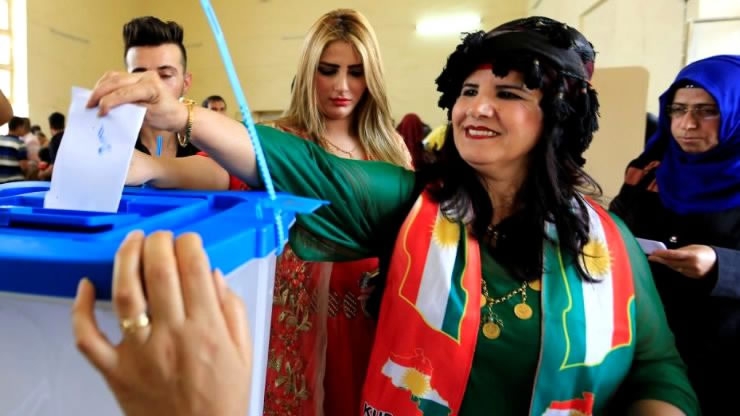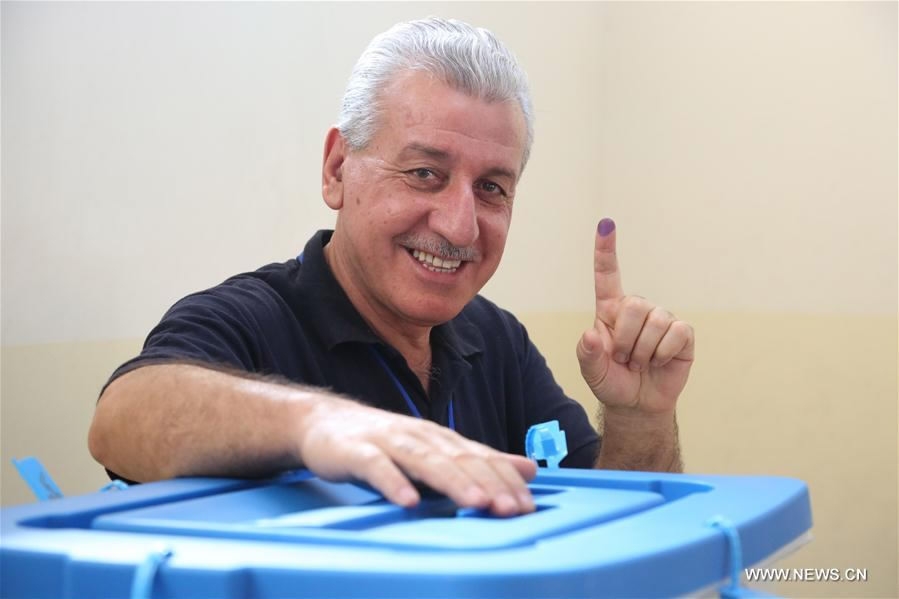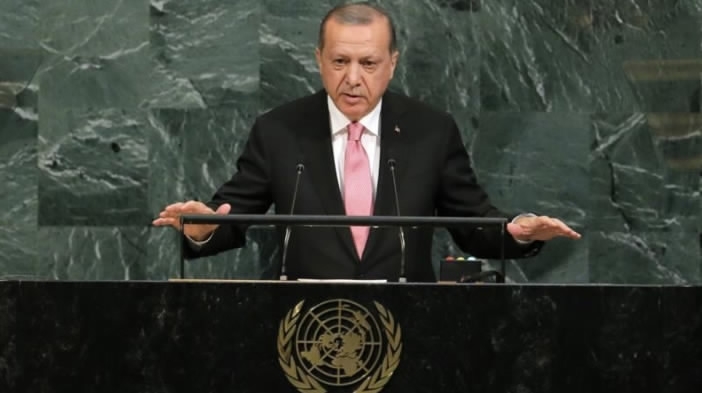
Opinions
14:50, 26-Sep-2017
Opinion: The long and short of Kurdish referendum
By Sajjad Malik from China.org.cn

Undeterred by strong opposition from several quarters, the decision by Iraqi Kurds to hold a referendum is a calculated move to determine the ultimate political future of their ethnic community.
The stakes are high, and there is a real danger of bloody consequences in the region, still seeking to escape ISIS-inspired violence.
The referendum is not meant to immediately trigger separation of 6 million Kurds, accounting for 20 percent of the total population, but it has pushed tension with Baghdad to new heights. The country's top court and parliament have come out against any popular vote aiming to seek independence.

However, for the majority of Kurds, it is "now or never." The Iraqi government is mired in several problems and too weak to stop a powerful section of the country from moving in a different political direction. Military power has certainly been exposed in the fight with ISIS.
It was the Peshmerga, a military force formed by young Kurds, that stood against the Islamic State at its peak following the taking of Mosul. Iraqi troops were on the run in the region before the ISIS onslaught. Indeed, Mosul was only re-taken through the active support of several countries led by the military might of the U.S.
Kurds can be termed a most unfortunate ethnic community who, despite having numerical strength, geographical concentration, resources, culture, history and a desire for a free life, have been denied an existence as a separate country. There are over 30 million Kurds divided between Iraq, Iran, Syria and Turkey.

A Kurdish man shows his finger with ink after casting his vote at a polling station during the referendum vote in Erbil, Iraq, on Sept. 25, 2017. The Iraqi Kurds on Monday cast their votes in a referendum that will determine the independence of the Kurdish region and the disputed areas that are currently under de facto Kurdish control. /Xinhua Photo
A Kurdish man shows his finger with ink after casting his vote at a polling station during the referendum vote in Erbil, Iraq, on Sept. 25, 2017. The Iraqi Kurds on Monday cast their votes in a referendum that will determine the independence of the Kurdish region and the disputed areas that are currently under de facto Kurdish control. /Xinhua Photo
They are the fourth largest regional ethnic people in the region after the Arabs, Turks and Iranians. They have a rich history with powerful rulers like Salahuddin (Saladin), the 12th century ruler of Egypt and Syria who founded the Ayubi dynasty. He still has magical appeal for many Muslims due to his heroics against the Crusaders.
Kurds had a chance to emerge as a nation after the First World War, but were denied their right by the big European powers. Another such possibility was also ignored after the Second World War. A Kurdish state emerged in Iran after the latter conflict, known as the Republic of Mahabad, but, despite Russian support, it lasted less than a year.
Kurds have enjoyed more freedom in Iraq than anywhere else and have had an autonomous status under a regional government since 1992. It was reward for supporting the U.S. when it decided to drive Iraq out of Kuwait after invasion of 1990.

A woman casts her vote during Kurdish independence referendum in Erbil, Iraq September 25, 2017. /Reuters Photo
A woman casts her vote during Kurdish independence referendum in Erbil, Iraq September 25, 2017. /Reuters Photo
Post-Saddam Iraq saw Kurds consolidating their hold on regional affairs. They now control the border with Iraq, Turkey and Syria, and run their local affairs almost free of any interference from Baghdad. Their strong army has proved its grit in the fight against ISIS.
The problem with the referendum vote, as an effort to seek independence, is that it would lead to the unraveling of the entire post-war arrangement in the Middle East. After parting ways from Iraq, the Kurds could embark on a project to unite all Kurds into one state.
Any unification effort along these lines would mean the breaking up of Iran, Turkey and Syria. It is dangerous and would serve as model for all ethnic communities to seek independence. It could herald death for the modern nation-state system which stands for a political entity where different sub-nations can live together for common political and economic objectives.

Turkish President Recep Tayyip Erdogan warned of sanctions over the Kurds' independence bid. /Reuters Photo
Turkish President Recep Tayyip Erdogan warned of sanctions over the Kurds' independence bid. /Reuters Photo
That is why all regional countries, including Saudi Arabia, are opposing the referendum. All major powers including the United States have asked Kurd leaders to postpone the process on the grounds that it was not the right time. Only France has recently announced a kind of tacit support .
However, Israel has come forward openly in support. The reasons are obvious as Israel wants a reliable friend and ally in the region dominated by Arab rivals. Israel might also be looking at a bigger picture and long term goals to use the Kurdish issue as bargaining chip with Iran.
Theoretically, every nation and people has absolute and inalienable right to seek freedom. But sometimes political decisions bring more disaster than benefits. Hence, it is important that Kurdish leaders make wise long-term calculations before putting the entire group in the life of fire.
(This piece was originally published on China.org.cn. The author is a columnist with China.org.cn. The article reflects the author’s opinion, not necessarily the view of CGTN.)
Source(s): China.org.cn

SITEMAP
Copyright © 2018 CGTN. Beijing ICP prepared NO.16065310-3
Copyright © 2018 CGTN. Beijing ICP prepared NO.16065310-3